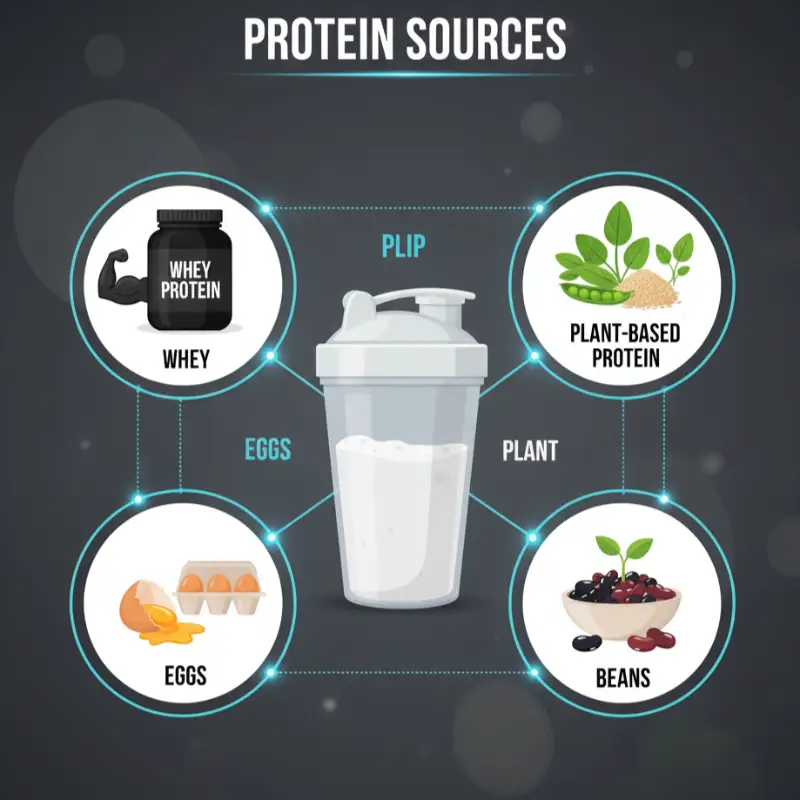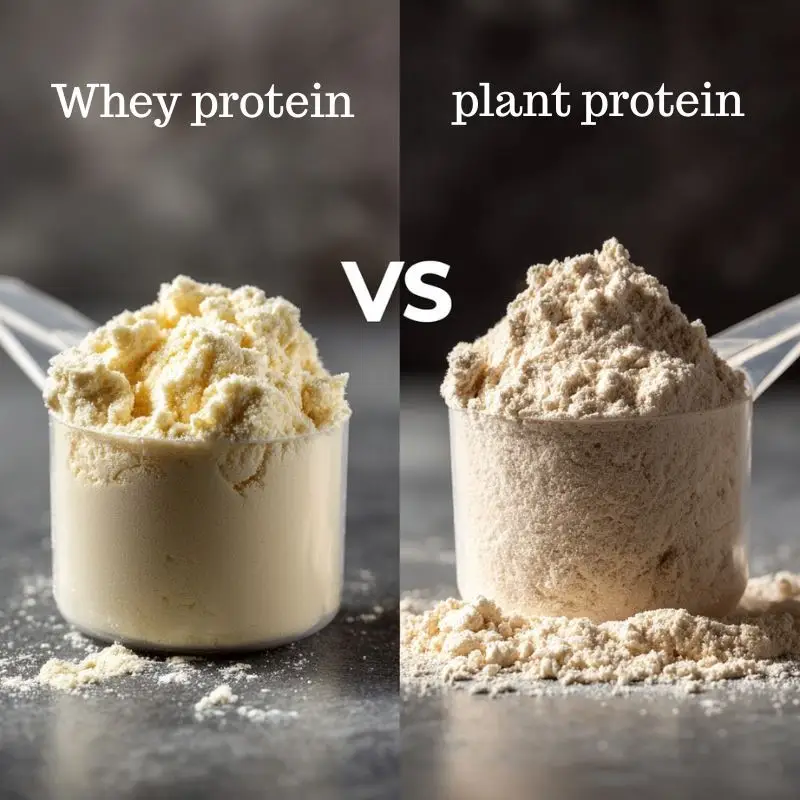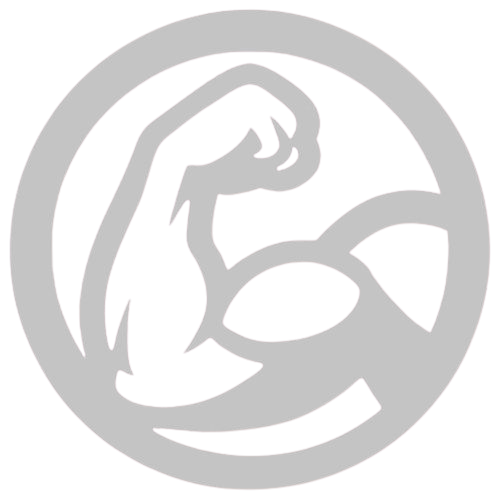If you are just starting your fitness journey, you may wonder what the best protein powder for beginners is. Protein powders can support muscle repair, help you recover faster, and even assist with weight management. For newcomers, the supplement aisle often feels overwhelming. With dozens of choices and flashy claims, it is easy to pick the wrong one. This guide explains how to choose a starter protein supplement that fits your goals. From understanding the science of protein to learning when to drink protein shakes for gym beginners, you will find everything needed to make a smart first choice.

Table of Contents
Understanding Protein Needs for Beginners
Why Protein Matters for Fitness Beginners
Protein is essential for building muscle, repairing damaged tissue, and maintaining a strong immune system. Beginners often see rapid progress during the first months of training. This is the stage when protein demand increases significantly. Without enough protein, growth slows and recovery suffers. While you can meet your needs through food, beginners may find it difficult to get consistent amounts daily. A supplement bridges this gap without replacing whole foods. For a deeper look at protein requirements, check our guide: How Much Protein Do You Need?
Food vs. Supplements – Where Protein Powder Fits
Whole foods should always come first. Chicken, eggs, dairy, fish, beans, and tofu all provide protein with additional nutrients. However, eating protein every three hours is not always practical. This is where protein shakes for gym beginners provide convenience. They give you a measured dose of protein in seconds. If your schedule is busy or you train after work, a shake ensures your body gets what it needs. See this comparison: Best High Protein Foods vs. Supplements.
Types of Protein Powders Explained

Whey Protein for Beginners – The Most Popular Choice
Whey protein comes from milk and is the most studied supplement for muscle growth. It digests quickly, making it perfect after workouts. Research shows whey protein stimulates muscle protein synthesis more effectively than many alternatives. For a whey protein beginner, a simple whey concentrate is affordable and effective. If you want fewer carbs and fats, whey isolate is a leaner choice. You can compare it with other options here: Whey vs Plant Protein.
Alternatives to Whey Protein for Special Diets
Not everyone tolerates whey well. Lactose intolerance, vegan diets, or allergies push some beginners toward alternatives. Plant-based proteins such as pea, soy, or hemp offer complete amino acid profiles. A blend of pea and rice protein provides muscle-building benefits close to whey. Keto-friendly powders use collagen or egg protein for low-carb goals. More diet-specific options are explained here: Protein for Different Diets (Vegan, Keto, etc.).
Choosing the First Protein Powder to Try
Starter Protein Supplement Checklist
When picking your first protein powder to try, check these factors:
| Factor | What to Look For |
|---|---|
| Protein Content | 20–25g per scoop |
| Calories | 100–150 calories (isolate) or 200+ (mass gainers) |
| Additives | Minimal fillers, no artificial dyes |
| Digestibility | Easy on stomach, low lactose if needed |
How to Read Protein Supplement Labels
Labels often confuse beginners. Always check protein percentage per scoop. Some brands fill containers with sugar or cheap additives. Avoid powders with less than 65% protein by weight. Look for third-party testing or certifications for safety. Our detailed guide on this: How to Read Protein Supplement Labels.
Protein Timing and Beginner Gains
When to Take Protein Shakes for Gym Beginners
Timing matters. Post-workout is the most important window because muscles are primed to absorb nutrients. Drinking your shake within 30–60 minutes of training helps maximize recovery. Beginners who struggle to meet daily needs can also use protein shakes as breakfast or a snack. Research shows total daily protein matters more than exact timing. Learn more: Protein Timing and Recovery.
How Protein Supports Recovery and Strength
Strength training causes micro-tears in muscle fibers. Protein provides amino acids to repair and rebuild stronger tissue. Without enough protein, soreness lasts longer, and strength gains slow. Consistent intake helps beginners recover faster, allowing more frequent workouts without fatigue.
Protein Powder for Different Goals
Best Protein Powder for Weight Loss vs. Muscle Gain
If your goal is fat loss, choose a low-calorie whey isolate or plant-based option. These provide protein without unnecessary carbs or fats. For muscle gain, whey concentrate or blends with added carbs can support growth. Mass gainers work for very active beginners who cannot eat enough. More detail here: Protein for Weight Loss vs. Muscle Gain.
Gender-Specific Considerations – Men vs. Women
A common myth claims women should avoid protein powder. In reality, women need just as much high-quality protein as men, adjusted for body weight. The difference is calorie balance. Women aiming for weight control should avoid high-calorie gainers. Men often use larger servings due to higher energy needs. For deeper insights: Protein Supplements for Women vs. Men.
Top Recommended Protein Powders for Beginners
Best Whey Protein Options in Europe and Beyond
The best whey protein Europe offers comes from brands tested for purity and quality. EU regulations require strict labeling, which helps beginners trust the product. Look for isolates if you want lean protein with minimal fat and lactose. Concentrates work well if budget is your priority.
Starter-Friendly Brands and Budget Options
As a starter protein supplement, affordability matters. Many entry-level brands offer sample packs. Choose companies with transparent labeling, clear amino acid profiles, and third-party testing. Avoid suspiciously cheap bulk powders with vague ingredient lists.
Common Protein Myths Beginners Should Ignore
Debunking Protein Powder Myths
Protein powders do not damage healthy kidneys when consumed at safe levels. They also do not automatically make you bulky. Growth requires consistent training and calorie surplus, not just shakes. For more debunked myths, check: Protein Myths Debunked.
How Much Protein is Actually Too Much?
Beginners often overdo protein. Consuming more than 2.5g per kg of body weight provides no extra benefit. Balance is key. Use shakes as a support tool, not the foundation of your diet.
Building Consistency with Your First Protein Supplement
How to Make Protein Shakes a Daily Habit
Consistency helps beginners stay on track. Prepare a shake as part of your post-workout routine. Try smoothies with fruit, oats, or nut butter for variety. Mixing with water makes it lighter; milk adds calories and creaminess.
Mistakes Beginners Make with Protein Powders
- Relying only on shakes instead of eating protein-rich meals.
- Ignoring the importance of calories and whole foods.
- Choosing brands with flashy marketing but poor formulas.
Conclusion: Key Takeaways for Beginners Starting with Protein Powder
The best protein powder for beginners is one that matches your diet, budget, and fitness goals. Start with a whey protein beginner blend or a simple plant-based alternative if you cannot have dairy. Focus on consistency, total protein intake, and training. Use shakes as support, not a replacement for real food. Remember, supplements work best when paired with a solid diet and regular exercise. Begin with a starter protein supplement, track your progress, and adjust as you grow stronger.
FAQs
What is the best protein powder for weight loss?
The best option is whey isolate or plant-based powders with low calories and minimal carbs.
What is the best protein powder for muscle gain?
Whey concentrate or isolate works best because it stimulates muscle growth quickly.
What is the best whey protein in Europe?
EU-tested brands with third-party verification ensure safe, high-quality whey protein.
What is the best protein powder for women?
The same powders men use, but with attention to calories and iron-enriched blends.
What is the best whey protein for muscle gain?
Whey isolate and concentrate are proven choices for strength and size.
What are the top 10 best whey protein powders?
Choose based on quality testing, protein percentage, digestibility, and customer trust, not hype.
Visit my Instagram account for more
